Dopamine Fasting 2.0: How Digital Detoxing Became a Secular Religion of Self-Control in the Age of Algorithms and Endless Overstimulation
Once a Silicon Valley meme, dopamine fasting has evolved into a global subculture. Part digital detox, part secular asceticism, it thrives not on science but on ritual, shame, and the hunger for control in an overstimulated age.
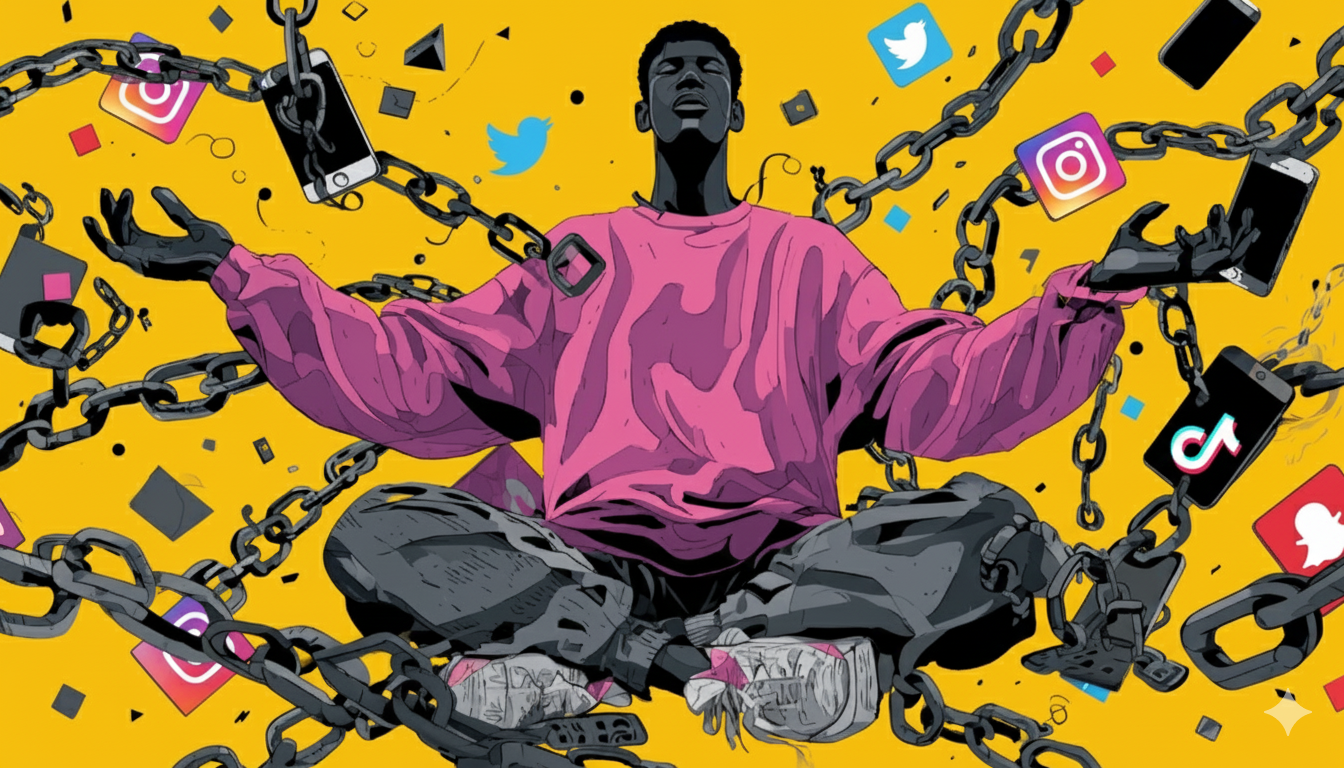
It reads like digital scripture.
"No screens. No music. No dopamine. I'm rebuilding my brain."
A young man posts this vow to r/DopamineDetoxing, one of Reddit's fast-growing communities for digital abstinence. With 13,000 members, and thousands of other followers across other communities like r/GetDisciplined, r/DigitalMinimalism, it's become a digital monastery for those grappling with distraction, compulsive scrolling, and burnout. His plan: a 72-hour fast. No phone. No apps. No talking. No eye contact. Not just logging off from Instagram-but from the world itself.
When he returns, the update reads like a pilgrim's diary. There's guilt-he broke on day one. Shame-he "just checked YouTube" and spiraled. Then redemption: fast completed, willpower restored, brain "rebooted."
This is dopamine detoxing. What began in Silicon Valley as a tongue-in-cheek productivity hack years ago has spread into something stranger and more sincere-a secular rite of purification shared through Reddit confessionals, YouTube diaries, and TikTok micro-sermons.

At its heart is a rejection of overstimulation: a voluntary blackout from anything that might trigger a dopamine "spike." No sugar, no video games, no Netflix, no idle scrolling. Just silence. Boredom. And the fragile hope that beneath all the noise, something more resilient might emerge.
What started as a meme about "resetting your brain" has metastasized into a ritual of denial and rebirth. A public confession of weakness, relapse, resolve. Less self-help and more self-exorcism.
You don't have to live in Silicon Valley to feel dopamine fasting's reach. In India, "dopamine detox retreats" now draw clients who want to escape their phones, spas included, even though clinical psychologists there warn that much of what people call "dopamine detox" is more metaphor than biology.
On TikTok, users build "dopamine menus" - curated lists of low‑stimulus pleasures to balance out the hyperactivity of the feed. What began as a biohacking trick among guys in hoodies silently fasting from music and apps is now a wellness trope in magazines, mental health columns, and corporate resets.

Even media outlets frame social media breaks as modern detox rituals, rebranding them with the same language of purity, reset, and renewal. In other words: dopamine fasting isn't just a Reddit ritual anymore. It's a cultural grammar, stitched into how we talk about attention, burnout, and "unplugging."
But why? Why are these ideas becoming more common place? Why has this act of self-flagellation become a hallmark of modern life?
Well that's what I'm going to to bloody well find out.
Dopamine Fasting Origins: Meme → Movement
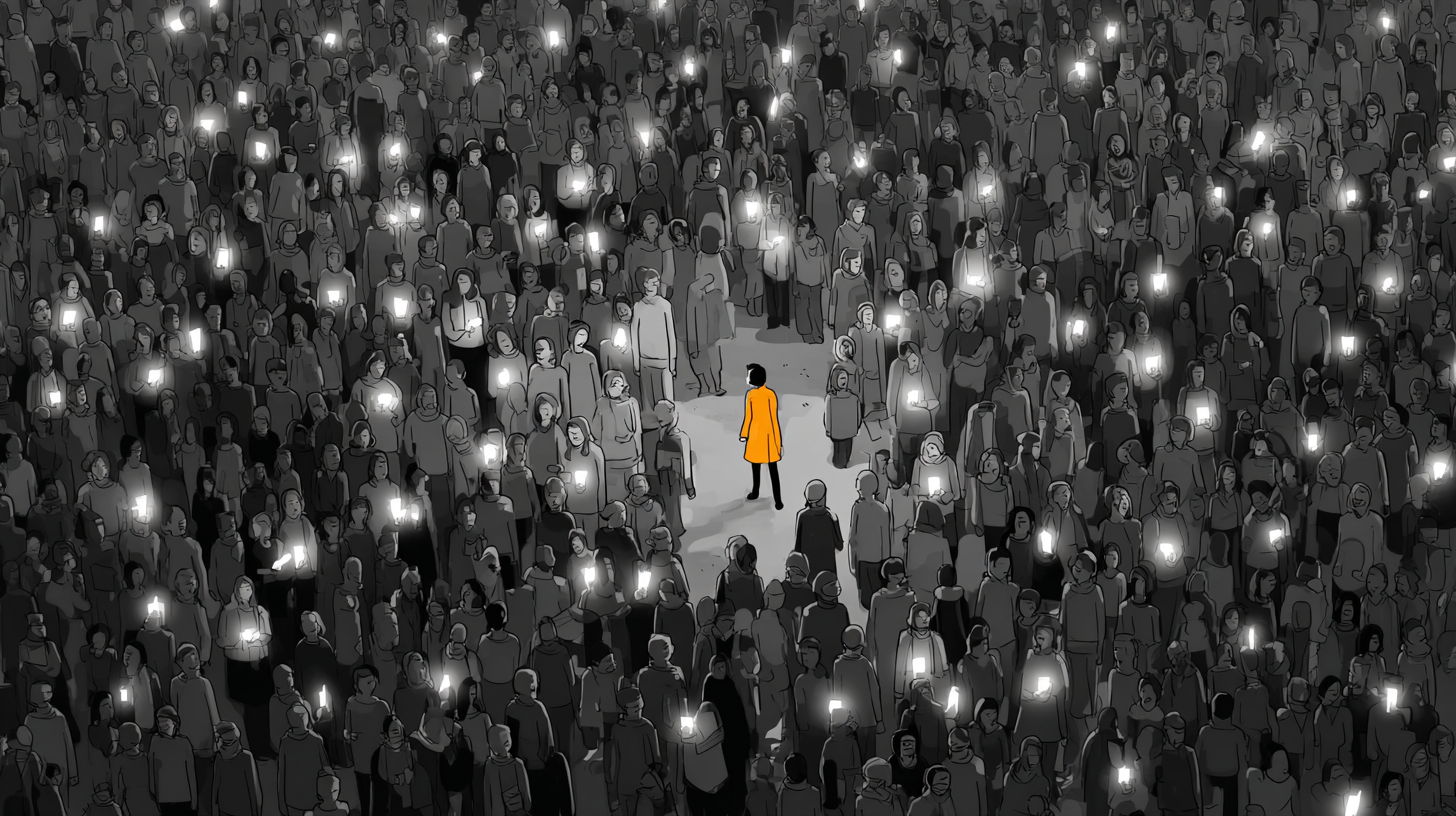
The idea of "dopamine fasting" emerged around 2019, nurtured in the biohacking corridors of Silicon Valley. As tech workers were already experimenting with intermittent fasting, cold exposure, and quantified self hacks, the logic went: why not extend the same discipline to the brain?
At face value, the concept is strikingly simple (if scientifically dubious): deprive yourself of pleasure so your dopamine system "resets." No social media. No video games. No sex. No music. No eye contact. No idle scrolling. The hope: when you return to normal life, everyday rewards feel sharper, your attention is sober, and your sense of agency regained.
The term gained visibility largely through Dr. Cameron Sepah, a psychologist and former Y Combinator advisor, who published "The Definitive Guide to Dopamine Fasting 2.0" on Medium in late 2019. Sepah framed the practice as a cognitive behavioral therapy (CBT) technique: rather than literally starving dopamine, the goal is restricting impulsive behaviors that hijack one's time and attention.
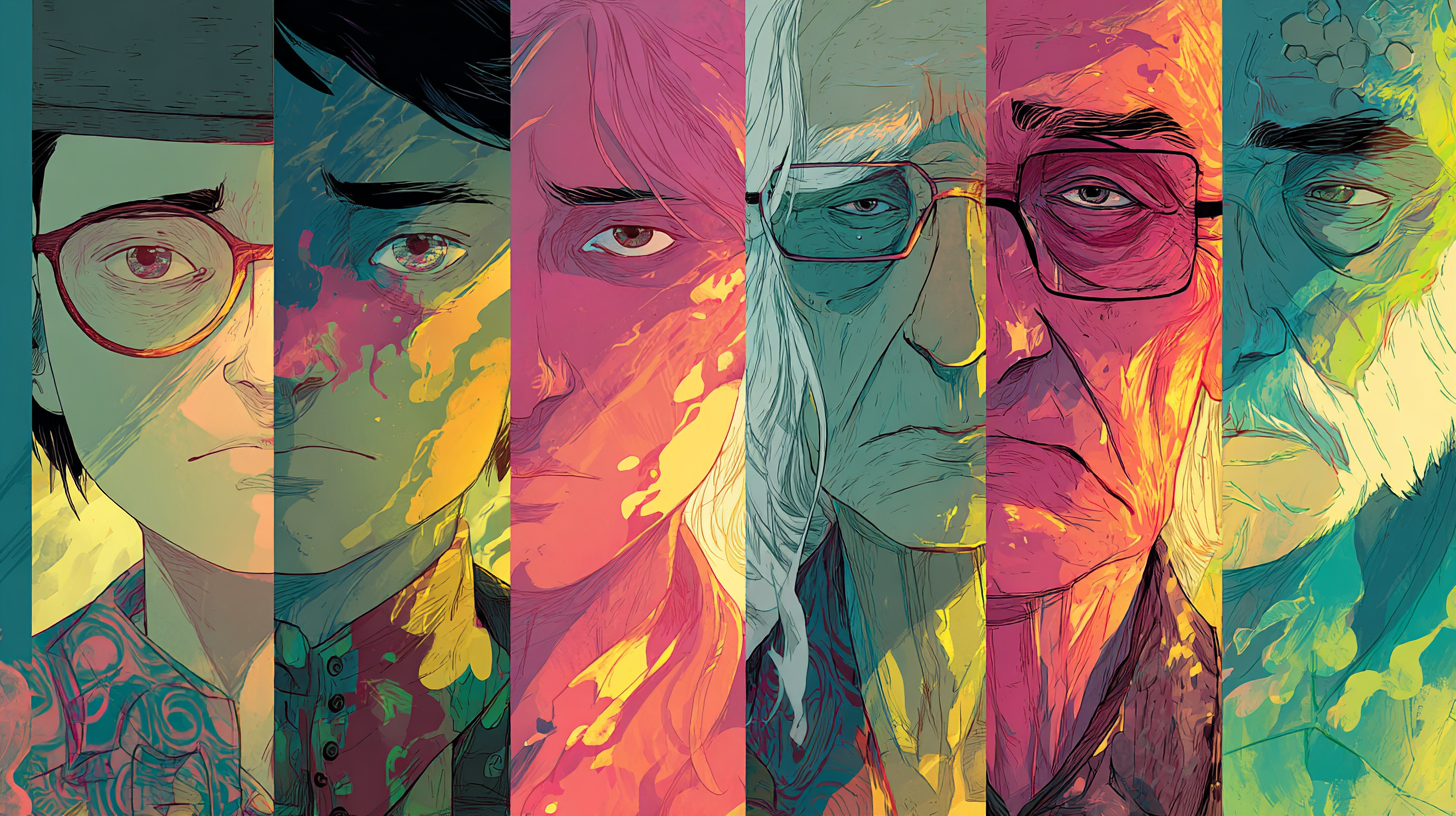
Media narratives picked it up quickly. In November 2019, the San Francisco Chronicle ran a feature titled "No food, fun or friends: Dopamine fasting is Silicon Valley's latest trend", describing young tech workers who would shutter their phones and retreat into sensory silence for entire weekends. In the same breath, Vox reported on Sepah's claim that without periodic breaks, we become numb to stimulation and chase ever higher "doses" of dopamine hits.
From there the meme mutated. On YouTube, dozens of videos titled "I Tried Dopamine Fasting for 30 Days" racked up views. These experimenters described banning everything - sugar, Netflix, socializing - for entire cycles. The stunt-like aesthetic resonated: the detox fast became a performance of self‑care.
But what had begun as a speculative productivity tweak became something more rigid. The subreddit r/DopamineDetoxing formed, hosting community stories of failure and revival. Rules hardened: fasting windows, abstinence guidelines, "purity checks," and relapse confessions became part of the shared lexicon.

By 2025, dopamine fasting had evolved from a Silicon Valley novelty into a diffuse global movement: a culture of disciplined abstinence, redemptive narratives, purity language. It now overlaps and sometimes merges with other male-coded discipline ideologies - NoFap, monk mode, digital minimalism - reframing what once was a performance trick into a spiritualized practice of purification.
It is no longer just an "optimization hack." It is a ritual. And like so many topics that I like to cover in the Brink - while these ideas bubble up quickly and are covered by the media extensively in its early days, my interest is what happens to its advocates after the media has moved on? Why do the ideas endure, and what does it say it about us and our relationship with ourselves?
What Dopamine Detoxing Looks Like Now (The 2.0 Era)

Step into r/DopamineDetoxing today - a subreddit of 13,000 members, a fraction of what it once was, and you won't find life hacks or brain scans. You'll find confessionals.
Posts begin with the same ritual phrasing:
- "Day 0 of trying to change my life after 5 years of social anxiety, procrastination, and doom‑scrolling."
- "Dopamine Detox - Day 0 | (smoking, weed, food, coffee, sex, phone)".
These aren't motivational updates. They're digital testaments-declarations of relapse, hope, and the start of a new cycle. What started as a productivity prank in Silicon Valley has ossified into a digital asceticism. It tends to come in three distinct forms.
- The Fast - A 24-72 hour blackout from stimulation. No screens, no music, no sugar, sometimes even no eye contact. These are framed not as biohacks but as rites of discipline-deprivation as a kind of purification.
- The Bootcamp - Daily regimens shaped by Pomodoro timers, cold showers, journaling, early wakeups, and strict schedules. It's less detox, more internal military campaign.
- The Challenge - From No Scroll September to coordinated crossover fasts with NoFap or Monk Mode, community abstinence becomes solidarity. Failure is not punished, but it is witnessed-publicly. And absolution is earned by starting again.
What's striking is the language. It is not scientific. It is moral. Despite it emerging from the world of Silicon Valley: a world obsessed by data and verifiability. Dopamine detoxing is different now. People don't "break their routine" they "fall." They don't quit, they "relapse." They don't succeed, they become "clean." Encouragement isn't framed as data. It's liturgical: "The fast is hard, but it shows you who you are."
This is not about neurotransmitters. It's about identity. About reclaiming sovereignty over one's attention. About turning abstinence into virtue.
Why does dopamine detoxing endure?

It would be easy to dismiss dopamine detoxing as pseudoscientific. And to some extent, neuroscientists have. But the practice persists. Grows. Evolves. Why?
Because it offers something harder to quantify: structure in a chaotic world. A story arc when everything feels like a feed. Discipline when modern life offers nothing but options. It taps something ancient (or at least, something believed to be ancient) the ritual of emptiness, the purification of discomfort and reanimates it for the digital age.
But here's the rub. Despite its emotional power, dopamine detoxing is built on a foundation that's pretty flawed.
The Science (Or Lack Thereof)

On paper, dopamine fasting reads like a neat experiment. Do the following: starve your brain of stimulation, "reset" your dopamine system and you will return to your baseline - sharper, more alive, more focused.
But our brains just don't work that way. The problem is not just the ambition of the claim - it's the flawed model underneath it. There is an absolute shit-ton of research that shows it’s not a ‘thing’ in the medical sense.
- A Cleveland Clinic explainer warns that a "dopamine detox" is a misnomer: you can't literally fast from dopamine, and the term "detox" is misleading.
- Harvard Health puts it plainly: "You can't 'fast' from a naturally occurring brain chemical ... a dopamine "fast" doesn't actually lower your dopamine levels."
- In Dopamine Nation, psychiatrist Anna Lembke contextualizes dopamine not as a villain to exorcise, but a signal system we must live with. Spikes and dips are normal, whether triggered by chocolate, music, or TikTok. The goal is balance, not abstinence.
In short: dopamine is not a finite reservoir waiting to be reset. It is always active; it is not a toxin to be purged. So if that’s true, why do fasters think it works? Reports of clarity, reduced cravings, renewed motivation persist. What, then, is really shifting? It is as always, the uniquely human notion that believing a thing is useful can in fact make it so. But there are aspects that are useful to understand.
It disrupts stimulus-response loops
By eliminating apps, sugar, porn, any habitual "click reflex," users can help become more aware of what they are doing and when. That gives us a chance to make different choices.
It can help reduce digital fatigue
Relief can come not from chemical change, but from taking an actual break from something. In an overstimulated system, even a few hours of silence can feel like cool air in a suffocating room.
It helps create more purposeful decisions
When all stimulation is withheld, compulsions become objects of witness rather than invisible masters. Fasters do report that they begin noticing "I want to check my phone" rather than just reflexively reaching for it. That pause is power.
Put plainly: dopamine fasting succeeds as a detox of our environment and behaviour, not as a purge of chemistry. Great! But there is a danger here. Not in the fast itself, but the pseudoscience wrapped around it.

When withdrawal irritability is framed as "toxins leaving the brain," when boredom is celebrated as proof of progress, the ritual reinforces itself. Anxiety is read as progress; relapse as spiritual struggle. That is not enlightenment. That is just how abstinence feels.
Self-denial, punishment and judgement of others not following these paths can make practitioners more isolated, and less able to co-exist with people who don't subscribe to the same ideas. Many of which are being discussed online. But why do these ideas carry so much weight?
Why It Sticks Anyway

If dopamine fasting doesn't hold up scientifically, why does it spread like scripture? Because I think it offers something deeper than neuroscience. It offers control.
In a world engineered to hijack your attention, abstinence can feel like the last form of agency. It's not about neurotransmitters anymore. It's about sovereignty. It’s turned up in my work as a therapist. I’ve heard things like:
- "It's the only time I feel like I'm in charge."
- "Everything else feels like autopilot."
- "My phone addiction is affecting my productivity, work performance and relationships. So today is the first day of me taking back control."
These are not comments on brain chemistry. They are declarations of something more flawed, more human I think. What dopamine fasters describe isn't a neurological intervention. It's a moral one.
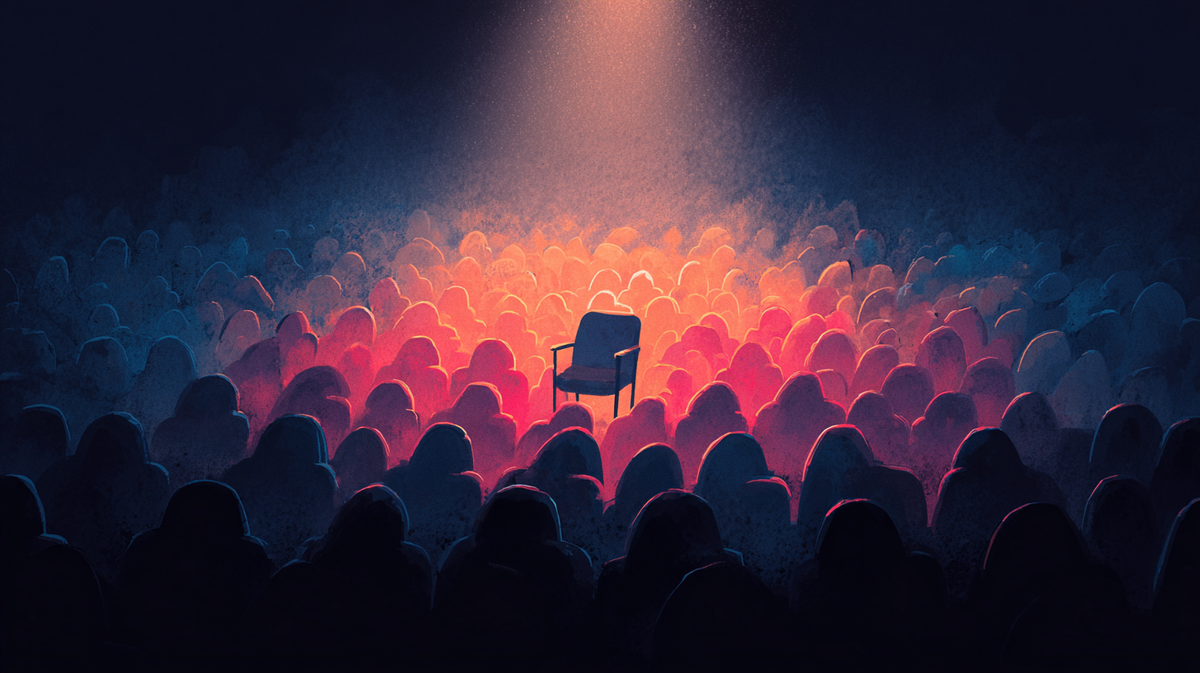
These communities are not random clusters of hacks. They're support groups. Monastic brotherhoods. Digital confessional booths. To join is to belong: to be seen by others trying to claw back some kind of self from the feed. And that process is ritualized: confession, relapse, redemption, repeat.
It mirrors religious structures not by accident, but because the human psyche leans that way. If dopamine fasting feels like faith, it's because it borrows from its architecture. Let me try and explain this a bit more.
Dopamine detoxing is cyclical.
- First comes the binge: screens, porn, sugar, gaming.
- Then the crash: mental fog, guilt, overstimulation.
- Then the shame: I'm weak, I'm failing.
- Then comes the fast: a hard stop, a set of rules, the determination to change.
- Then, the relief: clarity returns, the group validates your restart, the story rewrites itself.
- But then, eventually, the relapse will return and the cycle begins again.
It's not the science that makes it addictive. It's the ritual. The rhythm. The redemption loop.
Dopamine fasting also taps into culturally loaded archetypes - many of which I’ve explored before. For many men, it draws on the holy trinity of self-mastery: stoicism (where endurance is virtue), monk mode, (where silence becomes growth); and grindset culture (where pain is not punishment but investment).

These philosophies lend dopamine fasting an air of heroic suffering. You're not logging off. You're leveling up.
But clarity has a shadow. When all-or-nothing rules define your worth, the potential for shame becomes enormous. Fail once, and you're back to day zero. The higher the pedestal, the further the fall. As psychiatrist Anna Lembke notes in Dopamine Nation, addictive cycles are often driven as much by shame as by the pleasure itself. The danger is not the fast. It's the theology that grows around it.
Because dopamine fasting doesn't endure in spite of the discomfort - it endures because of it. It satisfies two deep instincts at once: the hunger for control, and the need for punishment. It's a powerful combination in a world where overstimulation and helplessness often go hand in hand. Let me explain.
Pleasure seeking animals?
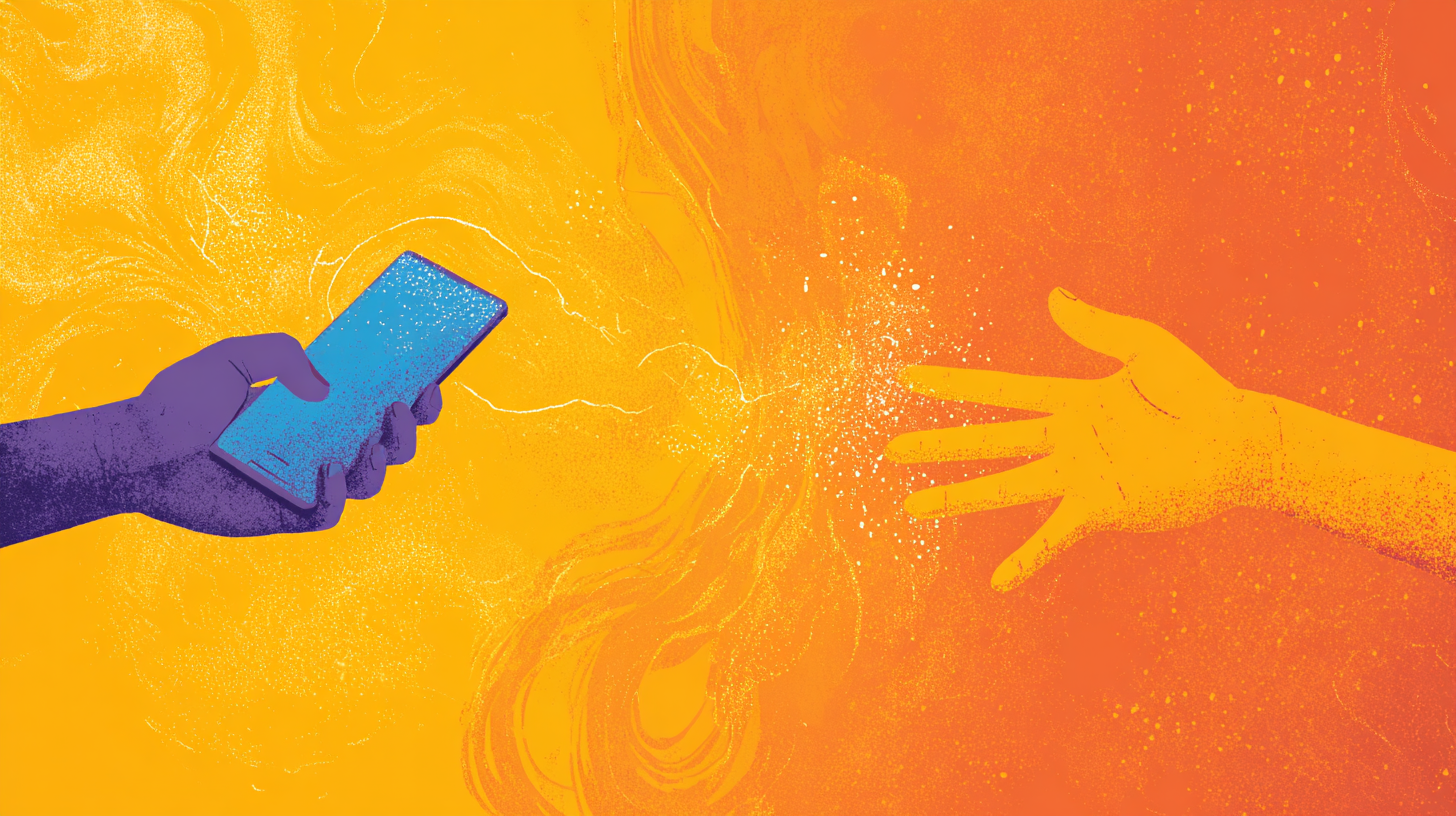
Freud once argued that humans are guided by the pleasure principle - the drive to seek pleasure and avoid pain. But later, he complicated the idea. In Beyond the Pleasure Principle, he noticed that people often repeat painful experiences instead of escaping them. He called it the repetition compulsion: the unconscious urge to relive discomfort in order to master it. We return to the site of our struggle not because it feels good, but because it gives shape to our chaos.
Lots of researchers have built on this idea: Eric Berne, Otto Fenichel, Erik Erikson have all explored the need for repetition and its role in our lives.
Seen through that lens, dopamine fasting is less about abstaining from pleasure and more about reclaiming authority over it. The discomfort becomes a reminder that we can still instil some boundary, some resistance over parts of ourselves that can feel unruly. Let me put it another way: the pain isn't a side effect; it's the point. It's how participants reassure themselves that they're not being ruled by impulse.
The suffering offers meaning. The restraint feels redemptive. And in an economy designed to reward indulgence, that denial becomes its own kind of pleasure - the pleasure of being able to stop.
Digital Detoxing: A Ritual for the Age of Overload

Back on r/DopamineDetoxing, the cycle resets again. Day 0. I failed.
The rhythm is familiar now. Confession. Guilt. Resolve. Another fast begins. Another promise to rebuild the brain. Another attempt to feel clean in a world that won't stop shouting for your attention.
This is the paradox at the heart of dopamine fasting: it borrows the logic of the very systems it tries to resist. Reset. Wipe. Start again. All-or-nothing. It's a response to overstimulation using the same mental mechanics that power the feeds.
It doesn't look like neuroscience anymore. It looks like ritual. Abstinence becomes a kind of order. Relapse, a reminder of just how hard it is to hold that order in a world designed to break it. And the cycle keeps going - not because it always works, but because it gives shape to feelings we rarely name: compulsiveness, shame, a craving for control.

That's why dopamine fasting doesn't just survive. It sticks. Not as a health hack, but as a structure. A story. A way to navigate life under constant digital pressure.
So maybe the question isn't whether it's scientifically sound. Maybe the better question is whether we can build gentler rituals - ones that offer clarity without collapsing into shame. That help people notice their behavior without punishing themselves for it. That acknowledge how hard it is to be alive and online right now.
Because in the end, the search isn't for purity. It's for peace.













